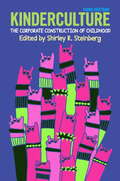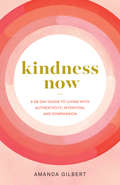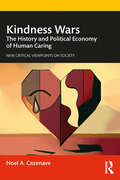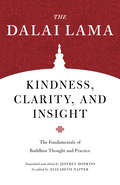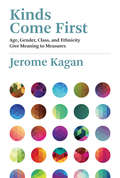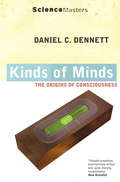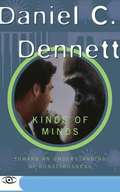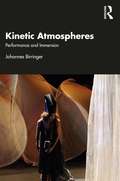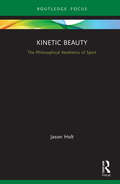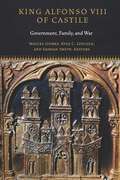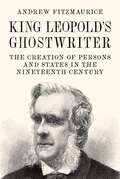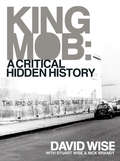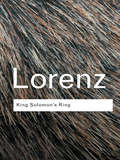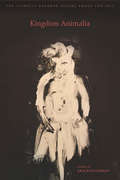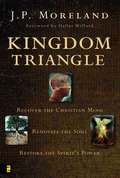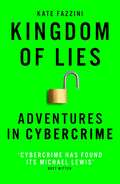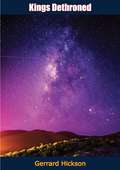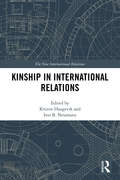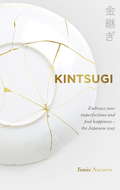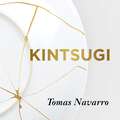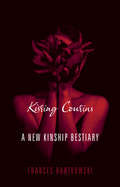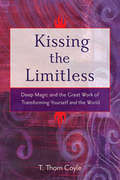- Table View
- List View
Kinder als „Ersatzteillieferanten“ im rechtlichen Kontext: Von der Nabelschnurblutspende zur Selektion von Retterkindern (Veröffentlichungen des Instituts für Deutsches, Europäisches und Internationales Medizinrecht, Gesundheitsrecht und Bioethik der Universitäten Heidelberg und Mannheim #50)
by Alena JerrentrupIn einer erstmaligen Gesamtdarstellung widmet sich dieses Buch der Frage, ob und gegebenenfalls inwieweit es zulässig ist, Kinder als Spender von Körperbestandteilen heranzuziehen oder sogar eigens zu diesem Zweck zu zeugen. Den Ausgangspunkt bildet dabei das Spannungsverhältnis, dass die Kinder zwar zunächst den Befugnissen der Eltern unterstehen, diese jedoch die kindlichen Interessen nicht unberücksichtigt lassen dürfen und elterliche Entscheidungsbefugnisse überdies mit Heranwachsen des Kindes zunehmend in den Hintergrund treten müssen. Die je nach Spendekonstellation unterschiedlich intensiven Eingriffe in die kindlichen Rechte, aber auch die verschiedenen Abstufungen eines möglichen Nutzens für das Spenderkind werden herausgearbeitet und mit Blick auf ihre medizinischen, ethischen und rechtlichen Implikationen analysiert. Zudem wird geprüft, ob in Deutschland derzeit eine widerspruchsfreie Rechtslage hinsichtlich der Erlaubnis respektive des Verbots einzelner Spendeformen durch Kinder existiert oder Handlungs- bzw. Harmonisierungsbedarf besteht. Die untersuchten Rechtsgebiete erstrecken sich vom Medizin- über das Zivil-, hier insbesondere das Familienrecht, bis hin zum Verfassungsrecht; der thematische Bogen reicht dabei von Neugeborenen bis Jugendlichen, Eigen- bis Fremdspenden, Blut- bis Organspenden und schließlich bis hin zur höchst umstrittenen Selektion sog. „Retterkinder” mittels PID.
Kinderculture
by Shirley R. SteinbergAmerica is a corporatized society defined by a culture of consumerism, and the youth market is one of the groups that corporations target most. By marketing directly to children, through television, movies, radio, video games, toys, books, and fast food, advertisers have produced a "kinderculture. ” In this eye-opening book, editor Shirley R. Steinberg reveals the profound impact that our purchasing-obsessed culture has on our children and argues that the experience of childhood has been reshaped into something that is prefabricated. Analyzing the pervasive influence of these corporate productions, top experts in the fields of education, sociology, communications, and cultural studies contribute incisive essays that students, parents, educators, and general readers will find insightful and entertaining. Including seven new chapters, this third edition is thoroughly updated with examinations of the icons that shape the values and consciousness of today’s children, including Twilight, True Blood, and vampires, hip hop, Hannah Montana, Disney, and others.
Kindness Now: A 28-Day Guide to Living with Authenticity, Intention, and Compassion
by Amanda GilbertCultivate an open heart and deepen your kindness and compassion response with this accessible, 28-day program of meditation and mindfulness exercises for a new generation of meditators.You've heard about all the ways meditation can help improve your overall health and wellbeing. You've probably even tried it once or twice and are thinking, "Now what?"Maintaining a meditation practice can seem like a daunting task, but Kindness Now will introduce you to the basics of mindfulness meditation and guide you into a deeper practice intended to promote personal growth and connection to your authentic self. Meditation teacher Amanda Gilbert introduces the traditional Buddhist heart practices known as the brahma-viharas-- Loving-Kindness, Compassion, Appreciative Joy, and Equanimity--as the foundation for a successful meditation practice. Gilbert will instruct you on how to bring these heart practices into your life through her 28-day guided meditation program aimed at helping you become a kinder, more compassionate, and radically loving person. With each daily practice, you will learn how to be more resilient in the face of common stressors, including anxiety, feelings of depression, "imposter" syndrome, and social media comparison effects, and ultimately make meditation an essential part of your life and self-care practice.
Kindness Wars: The History and Political Economy of Human Caring
by Noel A. CazenaveKindness Wars rescues our understanding of kindness from the clutches of an intellectually and morally myopic popular psychology and returns it to the stage of big ideas, in keeping with the important Enlightenment-era debates about human nature and possibilities. Cazenave conceptualizes kindness not just as a benevolent feeling, a caring thought, or a generous action but as a worldview, a theory, or an ideology that explains who we are and justifies how we treat others. Here “kindness wars” refer to the millennia-old “kindness theory” and ideological conflicts over what kind of societies humans can and should have. The book’s title denotes the two types of kindness wars it analyzes, conflict over (1) whether to be kind or not (i.e., the conflicts between kindness and other societal values and ideologies) and (2) what it means to be kind (i.e., the wars within kindness over different ideas as to what it means to be kind and to whom). Using a conflict theoretical perspective, Kindness Wars examines the history of the kindness concept; its many struggles with opposing notions of our true nature and possibilities; and what the lessons of that history and those battles offer us toward the development of a large, robust, and politically engaged conceptualization of kindness.
Kindness, Clarity, and Insight: The Fundamentals of Buddhist Thought and Practice (Core Teachings of Dalai Lama)
by The Dalai LamaThis beloved classic brings together in one volume all the major themes of the Dalai Lama's teachings such as religious values, the four noble truths, karma, compassion, and meditation.Drawn from the lectures he gave during his first three visits to North America, the book covers the core subject matter of Tibetan Buddhism, as presented for the first time to an English-speaking audience. The chapters are arranged developmentally from simple to complex topics, which include the luminous nature of the mind, the four noble truths, karma, the common goals of the world's religions, meditation, deities, and selflessness. Central to all these teachings is the necessity of compassion--which the Dalai Lama says is "the essence of religion" and "the most precious thing there is."
Kinds Come First: Age, Gender, Class, and Ethnicity Give Meaning to Measures (The\mit Press Ser.)
by Jerome KaganAn argument that the meaning of a psychological or biological measure depends on the age, gender class, and ethnicity of the human subject.In Kinds Come First, the distinguished psychologist Jerome Kagan argues that—contrary to the common assumption—age, gender, social class, and ethnicity affect the outcomes of psychological measures, and he questions the popular practice that uses statistical procedures to remove the effects of these categories to confirm a favored predictor-outcome relation. The idea that psychological measures have meanings that transcend the kinds of subjects, Kagan writes, reflects a premature hope of discovering broadly generalizable conclusions. In Kinds Come First, Kagan hopes to persuade investigators otherwise.Kagan examines the unique properties of the four categories, making the case that life stage, gender, class, and ethnicity affect psychological measures in complex, nontrivial ways. He discusses the relevance of a person's developmental stage to many outcomes, focusing on the interval from five to twelve months, when working memory and the ability to relate the past to the present expands. He cites evidence suggesting that a person's gender, class of rearing, and ethnicity, within a particular society, are better predictors of health, arrest record, cognitive skills, and current life satisfaction than either their genomes or answers to a personality questionnaire. Finally, Kagan argues, the biological properties that are more common in one gender, class, or ethnic group, are not a defensible basis for restricting access to an educational program, vocation, or position of authority. A society can ignore such differences in order to honor an ethical imperative for equality without incurring serious costs.
Kinds Of Minds: Toward An Understanding Of Consciousness (SCIENCE MASTERS)
by Daniel C. DennettDaniel Dennett examines the different elements that make up what we call 'minds'What kinds of minds are there, and how do we know? The first question is about what exists and the second is about our knowledge. The aim of Kinds of Minds is to answer these questions, in general outline, and to show why these two questions have to be answered together. What exists is one thing. What we can know about is something else. But we know enough about minds, Dennett argues, to know that one of the things that makes them different from everything else in the universe is the way we know about them.
Kinds of Minds: Toward an Understanding of Consciousness
by Daniel Clement DennettCombining ideas from philosophy, artificial intelligence, and neurobiology, Daniel Dennett leads the reader on a journey of inquiry, exploring such intriguing possibilities as: Can any of us really know what is going on in someone else's mind?
Kinetic Atmospheres: Performance and Immersion
by Johannes BirringerThis book offers a sustained and deeply experiential pragmatic study of performance environments, here defined at unstable, emerging, and multisensational atmospheres, open to interactions and travels in augmented virtualities. Birringer’s writings challenge common assumptions about embodiment and the digital, exploring and refining artistic research into physical movement behavior, gesture, sensing perception, cognition, and trans-sensory hallucination. If landscapes are autobiographical, and atmospheres prompt us to enter blurred lines of a "forest knowledge," where light, shade, and darkness entangle us in foraging mediations of contaminated diversity, then such sensitization to elemental environments requires a focus on processual interaction. Provocative chapters probe various types of performance scenarios and immersive architectures of the real and the virtual. They break new ground in analyzing an extended choreographic – the building of hypersensorial scenographies that include a range of materialities as well as bodily and metabodily presences. Foregrounding his notion of kinetic atmospheres, the author intimates a technosomatic theory of dance, performance, and ritual processes, while engaging in a vivid cross-cultural dialogue with some of the leading digital and theatrical artists worldwide. This poetic meditation will be of great interest to students and scholars in theatre, performing arts as well as media arts practitioners, composers, programmers, and designers.
Kinetic Beauty: The Philosophical Aesthetics of Sport (Ethics and Sport)
by Jason HoltSport aesthetics is an important but often marginalized field in the philosophy of sport. Kinetic Beauty offers a comprehensive, principled, pluralist introduction to the philosophical aesthetics of sport. The book tackles a wide variety of issues in the philosophical aesthetics of sport, proposing a five-level analysis that coordinates extant scholarship on the same conceptual map, reveals gaps in the literature, and motivates a fresh perspective on stubborn debates and novel topics in the field (for example, the aesthetic experience of athletes, aesthetic biases in sport, the paradox of sport fiction, and whether dance can be sport). This is an excellent resource for professors and students in the philosophy of sport, sport aesthetics, general aesthetics, and the philosophy of art. It is also a fascinating read for those working in kinesiology, sport studies, philosophy, art, and aesthetics.
King Alfonso VIII of Castile: Government, Family, and War (Fordham Series in Medieval Studies)
by Miguel Gómez, Damian Smith, and Kyle C. LincolnKing Alfonso VIII of Castile: Government, Family and War brings together a diverse group of scholars whose work concerns the reign of Alfonso VIII (1158–1215). This was a critical period in the history of the Iberian peninsula, when the conflict between the Christian north and the Moroccan empire of the Almohads was at its most intense, while the political divisions between the five Christian kingdoms reached their high-water mark. From his troubled ascension as a child to his victory at Las Navas de Tolosa near the end of his fifty-seven-year reign, Alfonso VIII and his kingdom were at the epicenter of many of the most dramatic events of the era.Contributors: Martin Alvira Cabrer, Janna Bianchini, Sam Zeno Conedera, S.J., Miguel Dolan Gómez, Carlos de Ayala Martínez, Kyle C. Lincoln, Joseph O’Callaghan, Teofi lo F. Ruiz, Miriam Shadis, Damian J. Smith, James J. Todesca
King Leopold's Ghostwriter: The Creation of Persons and States in the Nineteenth Century
by Andrew FitzmauriceA dramatic intellectual biography of Victorian jurist Travers Twiss, who provided the legal justification for the creation of the brutal Congo Free StateEminent jurist, Oxford professor, advocate to the Archbishop of Canterbury, Travers Twiss (1809–1897) was a model establishment figure in Victorian Britain, and a close collaborator of Prince Metternich, the architect of the Concert of Europe. Yet Twiss&’s life was defined by two events that threatened to undermine the order that he had so stoutly defended: a notorious social scandal and the creation of the Congo Free State. In King Leopold&’s Ghostwriter, Andrew Fitzmaurice tells the incredible story of a man who, driven by personal events that transformed him from a reactionary to a reformer, rewrote and liberalised international law—yet did so in service of the most brutal regime of the colonial era.In an elaborate deception, Twiss and Pharaïlde van Lynseele, a Belgian prostitute, sought to reinvent her as a woman of suitably noble birth to be his wife. Their subterfuge collapsed when another former client publicly denounced van Lynseele. Disgraced, Twiss resigned his offices and the couple fled to Switzerland. But this failure set the stage for a second, successful act of re-creation. Twiss found new employment as the intellectual driving force of King Leopold of Belgium&’s efforts to have the Congo recognised as a new state under his personal authority. Drawing on extensive new archival research, King Leopold&’s Ghostwriter recounts Twiss&’s story as never before, including how his creation of a new legal personhood for the Congo was intimately related to the earlier invention of a new legal personhood for his wife.Combining gripping biography and penetrating intellectual history, King Leopold&’s Ghostwriter uncovers a dramatic, ambiguous life that has had lasting influence on international law.
King Mob: A Critcal Hidden History
by David Wise"I met a prostitute - Angela W - from the fishing port of Grimsby on the mouth of the Humber in the North of England. I instantly fell in love with her in an all consuming way. The pain inside my body, so massively accumulated with the death of hopes for the social revolution...was wrenched away from me as she slowly...shambled towards me." So begins Dave Wise's first hand account of King Mob, the late 60s London based political grouping formed after core members were excluded from the Situationist International. From a radical, working class perspective, Wise recounts their attempts to move "from the Situationist salon to the street", whilst frankly outlining identifying tactical, strategic and theoretical holes in the groups' day to day actions. Plans to blow up waterfalls, getting arrested on demos dressed as pantomine horses (the back end got off in court, on the grounds he didn't know what the front end was doing...), sharing oversized baked bean costumes with ultra-Maoists on Vietnam marches. Getting high and hungrily devouring Coleridge, De Quincey, Rimbaud, Marx, De Sade, Breton, Joyce and Hegel. Urinating over the lectern whilst declaring the death of art at the 1968 English Surrealist convention, being (falsely) put in the frame for the 1969 Newcastle School of Art firebombing; perhaps most infamously dressing up as Santa Claus in Selfridges toy dept, Xmas '69, and watching the chaos of consumerism unfold before them as crying children had the King Mob freely-gifted toys wrenched from their arms by employees. As the downturn of the early 1970's approached, and with it the apparent end of any hope for imminent social revolution, some of King Mob drifted off into various strands of bourgeois counterculture, whilst others faced up to the harsher realities of the "capsized utopia". Some didn't make it through, as an at times unintentionally moving epilogue here recalls. "A Critical Hidden History" is a living, breathing account of a brief moment in time, when the light got through the cracks in the wall, and a new world felt possible. As we career into the 21st century, the relevance of the playful, life affirming, non-hierarchical, anti-capitalists King Mob seems as great today as it ever did.
King Solomon's Ring: New Light On Animal Ways (Routledge Classics)
by Konrad LorenzSolomon, the legend goes, had a magic ring which enabled him to speak to the animals in their own language. Konrad Lorenz was gifted with a similar power of understanding the animal world. He was that rare beast, a brilliant scientist who could write (and indeed draw) beautifully. He did more than any other person to establish and popularize the study of how animals behave, receiving a Nobel Prize for his work. King Solomon's Ring, the book which brought him worldwide recognition, is a delightful treasury of observations and insights into the lives of all sorts of creatures, from jackdaws and water-shrews to dogs, cats and even wolves. Charmingly illustrated by Lorenz himself, this book is a wonderfully written introduction to the world of our furred and feathered friends, a world which often provides an uncanny resemblance to our own. A must for any animal-lover!
Kingdom Animalia
by Aracelis GirmayThe poems in this highly anticipated second book are elegiac poems, as concerned with honoring our dead as they are with praising the living. Through Aracelis Girmay's lens, everything is animal: the sea, a jukebox, the desert. In these poems, everything possesses a system of desire, hunger, a set of teeth, and language. These are poems about what is both difficult and beautiful about our time here on earth. Aracelis Girmay's debut collection won the Great Lakes Colleges Association New Writers Award. A Cave Canem Fellow, she is on the faculty at Drew University and Hampshire College. She lives in Brooklyn, New York.
Kingdom Animalia (American Poets Continuum #131)
by Aracelis GirmayThe poems in this highly anticipated second book are elegiac poems, as concerned with honoring our dead as they are with praising the living. Through Aracelis Girmay's lens, everything is animal: the sea, a jukebox, the desert. In these poems, everything possesses a system of desire, hunger, a set of teeth, and language. These are poems about what is both difficult and beautiful about our time here on earth. Aracelis Girmay's debut collection won the Great Lakes Colleges Association New Writers Award. A Cave Canem Fellow, she is on the faculty at Drew University and Hampshire College. She lives in Brooklyn, New York.
Kingdom Triangle
by J. P. MorelandWestern society is in crisis, the result of our culture's embrace of naturalism and postmodernism. At the same time, the biblical worldview has been pushed to the margins. Christians have been strongly influenced by these trends, with the result that the personal lives of Christians often reflect the surrounding culture more than the way of Christ, and the church's transforming influence on society has waned. In Kingdom Triangle, J. P. Moreland issues a call to recapture the drama and power of kingdom living. He examines and provides a penetrating critique of these worldviews and shows how they have ushered in the current societal crisis. He then lays out a strategy for the Christian community to regain the potency of kingdom life and influence in the world. Drawing insights from the early church, he outlines three essential ingredients of this revolution: ? Recovery of the Christian mind ? Renovation of Christian spirituality ? Restoration of the power of the Holy Spirit He believes that evangelical Christianity can mature and lead the surrounding society out of the meaningless morass it finds itself in with humility and vision.
Kingdom of Lies: Unnerving adventures in the world of cybercrime
by Kate FazziniWould you say your phone is safe, or your computer? What about your car? Or your bank? There is a global war going on and the next target could be anyone – an international corporation or a randomly selected individual. From cybercrime villages in Romania to intellectual property theft campaigns in China, these are the true stories of the hackers behind some of the largest cyberattacks in history and those committed to stopping them. You&’ve never heard of them and you&’re not getting their real names. Kate Fazzini has met the hackers who create new cyberweapons, hack sports cars and develop ransomware capable of stopping international banks in their tracks. Kingdom of Lies is a fast-paced look at technological innovations that were mere fantasy only a few years ago, but now make up an integral part of all our lives.
Kings Dethroned: A History Of The Evolution Of Astronomy From The Time Of The Roman Empire Up To The Present Day; Showing It To Be An Amazing Series
by Gerrard HicksonAt the turn of the twentieth century, Gerrard Hickson stumbled upon a discovery which convinced him of something shocking. The giants of astronomy had miscalculated the distance of the sun from the Earth, it was closer than we ever thought. The popular estimate of approximately ninety-three million miles appeared to be a mistake, as inconceivable as it seemed.Hickson pored through the methods that his predecessors had used to calculate the distance and the accounts of their work, searching for the means to disprove his theory but instead he found a mistake in Dr. Hailey’s diurnal method. Invented by Hailey in the nineteenth century and used as a basis for many other calculations about our solar system.We can only imagine that Hickson must have gritted his teeth when he set himself the challenge of proving Dr. Hailey’s error. Kings Dethroned is the result of his research, and through his retracing of the steps of astronomers from the Roman Empire all the way up to the present day, we can see an accurate representation of the planets and our sun.Gerrard Hickson, unlike his predecessors, took his findings to the general public and published this book for the consumption of all. Having been rejected or ignored by experts and scientific societies across the western world, he chose to trust in the public. He felt that the truth and his discovery were the wealth of the whole human species and in this modern age it does the reader only good to contemplate the necessity of constant and honest scientific enquiry.
Kinship in International Relations (New International Relations)
by Iver B Neumann Kristin HaugevikWhile kinship is among the basic organizing principles of all human life, its role in and implications for international politics and relations have been subject to surprisingly little exploration in International Relations (IR) scholarship. This volume is the first volume aimed at thinking systematically about kinship in IR – as an organizing principle, as a source of political and social processes and outcomes, and as a practical and analytical category that not only reflects but also shapes politics and interaction on the international political arena. Contributors trace everyday uses of kinship terminology to explore the relevance of kinship in different political and cultural contexts and to look at interactions taking place above, at and within the state level. The book suggests that kinship can expand or limit actors’ political room for maneuvereon the international political arena, making some actions and practices appear possible and likely, and others less so. As an analytical category, kinship can help us categorize and understand relations between actors in the international arena. It presents itself as a ready-made classificatory system for understanding how entities within a hierarchy are organized in relation to one another, and how this logic is all at once natural and social.
Kintsugi: Embrace your imperfections and find happiness - the Japanese way
by Tomás NavarroDiscover how to embrace the imperfect with Kintsugi. Apply this ancient principle to your life and you will learn how to repair yourself, rebuild your life and love your flaws. <P><P>Japanese Kintsugi masters delicately patch up broken ceramics with gold adhesive, leaving the restoration clearly visible to others. Psychologist Tomás Navarro believes that we should approach our lives with the same philosophy. Everyone faces suffering, but it is the way in which we overcome our troubles, and heal our emotional wounds, that is key. We shouldn't conceal our repairs, they are proof of our strength. <P><P>Navarro presents real solutions to genuine problems that he has seen in his professional practice. His anecdotes demonstrate that it is possible to transform adversity or setbacks into a strength. His psychological understanding and perspective will leave you feeling courageous and prepared, should you experience misfortune, be it heartbreak, a job loss or bereavement. <P><P>Often practised alongside Ikigai (or the art of finding one's life purpose), Kintsugi shows you how happiness can be found again, often against all odds. A painful experience can in fact make you a more determined individual, ready to face the world with optimism. <P><P>'Kintsugi, which translates as "golden joinery", is the latest lifestyle trend promising to transform our lives.' - The Telegraph
Kintsugi: Embrace your imperfections and find happiness - the Japanese way
by Tomás NavarroDiscover how to embrace the imperfect with Kintsugi. Apply this ancient principle to your life and you will learn how to repair yourself, rebuild your life and love your flaws.Japanese Kintsugi masters delicately patch up broken ceramics with gold adhesive, leaving the restoration clearly visible to others. Psychologist Tomás Navarro believes that we should approach our lives with the same philosophy. Everyone faces suffering, but it is the way in which we overcome our troubles, and heal our emotional wounds, that is key. We shouldn't conceal our repairs, they are proof of our strength.Navarro presents real solutions to genuine problems that he has seen in his professional practice. His anecdotes demonstrate that it is possible to transform adversity or setbacks into a strength. His psychological understanding and perspective will leave you feeling courageous and prepared, should you experience misfortune, be it heartbreak, a job loss or bereavement.Often practised alongside Ikigai (or the art of finding one's life purpose), Kintsugi shows you how happiness can be found again, often against all odds. A painful experience can in fact make you a more determined individual, ready to face the world with optimism.'Kintsugi, which translates as "golden joinery", is the latest lifestyle trend promising to transform our lives.' - The Telegraph
Kintsugi: Embrace your imperfections and find happiness - the Japanese way
by Tomás NavarroAn inspiring guide that teaches us how adversity can be an opportunity to make us into stronger, better people.Discover how to rebuild your life after it is broken, repair the cracks, heal emotional wounds, and embrace imperfection. Written by a psychologist, Tomas Navarro, this book explores the Japanese notion of Kintsugi, the ancient Japanese art of mending broken ceramics with gold, leaving visible the repair as a symbol of fragility, strength and beauty. Using this method as a metaphor, we will learn how to rebuild our lives after they have been broken, build resilience and heal emotional wounds. Tomas will help us to understand the role played by adversity in our lives, how we can react in the face of it and the simple steps we can take to confront and overcome life's troubles. Kintsugi proves that happiness can be found again, often against all the odds, and that a traumatic or painful experience does not have to be the undoing of you.(P)2018 Hodder & Stoughton Limited
Kissing Cousins: A New Kinship Bestiary
by Frances BartkowskiSince DNA has replaced blood as the medium through which we establish kinship, how do we determine with whom we are kin? Who counts among those we care for? The distinction between these categories is constantly in flux. How do we come to decide those we may kiss and those we may kill?Focusing on narratives of kinship as they are defined in contemporary film, literature, and news media, Frances Bartkowski discusses the impact of "stories of origin" on our regard for nonhuman species. She locates the role of "totems and taboos" in forming and re-forming kinship categories-groupings that enable us to tie the personal to the social-and explores the bestiary, among the oldest of literary forms. The bestiary is the realm in which we allegorize the place of humans and other species, a menagerie encompassing animals we know as well as human-animal chimeras and other beings that challenge the "natural" order of the world. Yet advances in reproductive technologies, the mapping of genomes, and the study of primates continually destabilize these categories and recast the dynamic between the natural and the cultural.Bartkowski highlights the arbitrariness of traditional kinship arrangements and asks us to rethink our notions of empathy and ethics. She shows how current dialogues concerning ethics and desire determine contemporary attitudes toward issues of care, and suggests a new framework for negotiating connection and conflict.
Kissing the Limitless: Deep Magic and the Great Work of Transforming Yourself and the World
by T. Thorn CoyleThis book was written to be used in concert with whatever pagan tradition you are currently involved in. There are at least three levels to it: part one will help you strengthen the foundations of your spiritual practice, part two will ensure that you are sound in body, mind, emotion, sex, and spirit, and have developed will and ethics, and part three will lead you further into connection with your Godhood. . . The tools used to do this are breath work, dream work, pendulum work, aura reading, tarot, meditation, spells, and others. The goal of the book is to help guide you through the stages of personal consciousness that will then enable you to step into inclusive consciousness—a consciousness that encompasses the personal, political, environmental, social, mental, and transpersonal. [It is this] inclusive consciousness [that] enables us to reach the limitless, the divine, Goddess or God.

